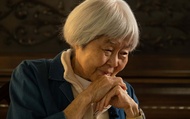en ja es pt

culture
Exploring the Nikkei experience theme by theme...story by story
Nikkei Chronicles is a series of annual theme-based writing projects with the overall goal of promoting a more profound understanding of the complex histories and insights of multicultural, multiracial, and multinational people of Japanese descent around the world.
Each year, we will solicit articles around central themes such as Nikkei food culture, Mixed Nikkei identity, etc. The personal stories, essays, academic papers, books reviews, and other prose genres that meet each year’s theme will be published together as a series in Discover Nikkei’s Journal section.
There are many different ways that Nikkei around the world have connected with their heritage while growing up. How have you connected with yours? For example, what kind of Nikkei community events did you attend? What kinds of childhood stories do you have about Nikkei food? How did you learn Japanese as a child?
The theme of this series—Nikkei food—takes a look at several questions, such as: How does the food you eat connect your Nikkei community? What kinds of Nikkei recipes have been passed down from generation to generation? What is your favorite Japanese and/or Nikkei dish?
Thank you very much to everyone who submitted their Itadakimasu 3! stories! Find out which were selected as the favorites!
The theme of this series—Nikkei generations—takes a look at intergenerational relationships in Nikkei communities around the world, with a particular focus on the emerging younger generations of Nikkei and how they connect (or don’t) with their roots and with older generations.
Thank you very much to everyone who submitted their Nikkei Generations stories! Find out which were selected as the favorites!
What makes Nikkei sports more than just a game for you? Perhaps you’d like to write about your Nikkei sports hero or the impact of Japanese athletes on your Nikkei identity. Did your parents meet through a Nikkei basketball or bowling league? Are you intrigued by an important chapter of Nikkei sports history, like the prewar Issei and Nisei baseball teams?
Thank you very much to everyone who submitted their Nikkei Sports stories! Find out which were selected as the favorites!
The word “hero” can mean different things to different people. For this series, we have explored the idea of a Nikkei hero and what it means to a variety of people. Who is your hero? What is their story? How have they influenced your Nikkei identity or your connection to your Nikkei heritage?
Thank you very much to everyone who submitted their Nikkei Heroes stories! Find out which were selected as the favorites!
Stories in the Nikkei Chronicles series have explored many of the ways that Nikkei express their unique culture, whether through food, language, family, or tradition. For this edition, we are digging deeper—all the way down to our roots!
Thank you very much to everyone who submitted their Nikkei Roots stories! Find out which were selected as the favorites!
How does the food you eat express your identity? How does food help to connect your community and bring people together? What kinds of recipes have been passed down from generation to generation in your family? Itadakimasu 2! Another Taste of Nikkei Culture revisited the role of food in Nikkei culture.
Thank you very much to everyone who submitted their Itadakimasu 2! stories! Find out which were selected as the favorites!
Arigato, baka, sushi, benjo, and shoyu—how often have you used these words? In an informal survey conducted in 2010, we found that these were the most frequently used Japanese words among Japanese Americans living in Southern California. This series introduces stories that share Nikkei perspectives on and experiences with language.
Thank you very much to everyone who submitted their Nikkei-go stories! Find out which were selected as the favorites!
Nikkei family roles and traditions are unique because they have evolved over many generations, based on various social and cultural experiences in the country they migrated to. Discover Nikkei collected stories from around the world related to the topic of Nikkei Family, including the stories that tell how your family has influenced who you are, and allow us to understand your perspectives on what family is.
Thank you very much to everyone who submitted their Nikkei Family stories! Find out which were selected as the favorites!
What’s in a name? This series introduces stories exploring the meanings, origins, and the untold stories behind personal Nikkei names. This can include family names, given names, and even nicknames!
Thank you very much to everyone who submitted their Nikkei Names stories! Find out which were selected as the favorites!
Being Nikkei is inherently a state of mixed traditions and cultures. For many Nikkei families around the world, it is common to mix Japanese words with Spanish; or celebrate the New Year’s Eve countdown with champagne and Oshogatsu with ozoni and other Japanese traditions. This series introduces stories explore how Nikkei around the world perceive and experience being multiracial, multinational, multilingual, and multigenerational.
Thank you very much to everyone who submitted their Nikkei+ stories! Find out which were selected as the favorites!
For many Nikkei around the world, food is often the strongest and most lasting connection they have with their culture. Across generations, language and traditions are often lost, but their connections to food remain. Discover Nikkei collected stories from around the world related to the topic of Nikkei food culture and its impact on Nikkei identity and communities.
Thank you very much to everyone who submitted their Itadakimasu! stories! Find out which were selected as the favorites!